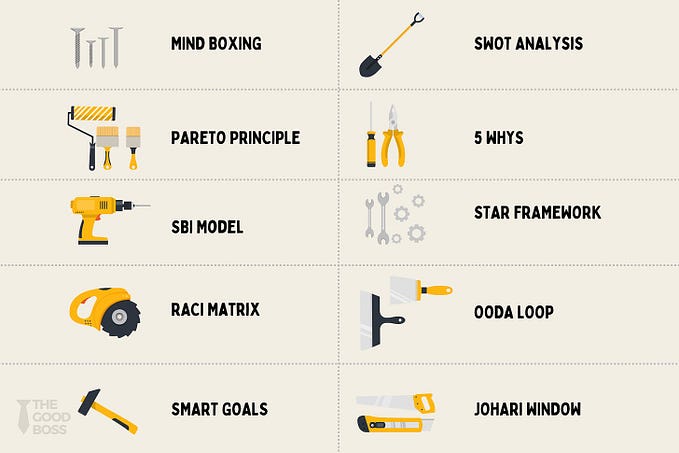All good engineering organization organizations eventually form career ladders or paths around 2 basic principles.
- Ladders separated by function i.e. at a minimum separate ladders for individual contributors and managers. As organizations mature you typically start seeing more parallel ladders being added into the mix e.g. Product Management, Program Management, etc. but you need to start with at least a clear separation between these 2 roles.
- Rubrics for the levels within the ladders. A good rubric will capture the expectations of a role for the individuals performing it. They should be detailed enough to capture requirements to progress between levels but should refrain from being a prescriptive checklist.
The ladders following these principles often lead to a common pattern that I’ve started referring to as the mid-career plateau. This is the level that is known at many organizations as the “career level”. The reason it is referred to as such is that progressing beyond this is entirely optional and hence requires a significant lift and differentiation. Progressing beyond this level also often indicates either a significant increase in breadth or depth.
First, this is not a “bad” thing. I always remind people that it means that this is entirely optional and everyone can choose to navigate this at their own pace. However many of us as engineering managers, as well as the people we support, understandably find this stage to be challenging, if not mildly panic-inducing to navigate.
So first deep breath. And then a reframe.
Career ladders, both within the organization and in the industry overall should be treated as guidelines or building blocks, to be moved around as required vs being strictly followed. I’m listing a few strategies I use to think about these that I hope others will find useful as well.
There is a large overlap between skills at more senior levels
This is especially true as you progress up the ladder. Thinking of these as fundamental skills to acquire regardless of which particular path you might eventually pick makes it easier to focus on the skills vs the next step in the ladder.
- Communication: The ability to communicate your ideas to diverse audiences via different mediums is essential at all stages in your career. It becomes particularly important as you become more senior because your ability to communicate your ideas will be a key to their success.
- Empathy: Empathy both for the users of your work and your fellow team members, is key to solving the “right” problems. Having the ability to see things from different perspectives and solving for those vs for the obvious narrow initial subset helps with pretty much every shape of problem you are likely to encounter.
- Planning: This is not about the ability to use planning tools as much as it is the ability to take large unstructured pieces of work or problems and break them down systematically into smaller manageable pieces that you can make meaningful progress against. Planning also encompasses the ability to manage your time, manage yourself, your attention and limited resources.
- Strategy and design: There is a strong overlap between thinking strategically about technical problems and designing their solutions at different scales as well as other problems you encounter in an organization. Refining your ability to think about problems from a broader lens and designing effective solutions is a highly effective skill that needs significant work to develop well. Systems thinking is a recent discovery in this area for me, particularly “Thinking in Systems” (h/t Will Larson)
- Relentlessly hone your technical skills: This is so obvious that I almost didn’t put it here initially. I do however mean overall technical skills vs pure coding, which is why this applies to all types of roles. Prioritize skills and learning over a particular technology. A unique way to do this that I’ve become aware of more recently is to switch between being an individual contributor and a manager, referred to here as the pendulum.
Focus on opportunities and impact over roles and titles
It is easy to focus on the rubric of your current role and the next step in the ladder because those often have the clearest examples. However, it’s more useful to think of them as the minimum constraint for opportunities vs the outer bound. To start, pick an organization that values impact over the narrow constraints of your role and where you do not have to be “blessed” by a role or title to do the things you would like to be doing long term. Some examples:
- There are a lot of opportunities to mentor others as an engineer, via intern mentoring, new hire on-boarding, etc. If you are an engineer that is eventually looking to be a manager, these are useful opportunities that do not require you to have the title of a manager.
- If you are an early manager and would like to grow your skills in building teams, look for opportunities to help recruit outside the immediate roles you can hire for. Particularly in a fast-growing organization, recruiting is something everyone can help with. As you do this, can you also improve the process? Do all interview loops have rubrics? Do they have a process to ramp up new interviewers?
Regardless of your current role, look for opportunities that exist because of gaps in your organization. These can be both technical or organizational or a mix. Try to solve for those gaps and you might be surprised to find that opportunities for impact exist everywhere.
Tools for career goals
Writing down my career goals is something I started doing pretty late but find valuable whenever I do it. As a manager, I find it particularly useful when someone shares theirs with me because it helps me help them. If you don’t already have a brag document, I highly recommend writing one. Once you have a backward-looking brag document, you can write a forward-looking one that can be your starting point for your goals. A career narrative is also a very useful format.
Some prompts that make this exercise easier that I like to use:
- If you were speaking at a conference what would you want on your speaker bio?
- What are the parts of your current role that spark the most joy? Do these collectively help you frame where you want to be career wise?
- If you were writing a future performance review what would you want its highlights to be?
The best goals are ones where your personal goals share significant overlap with your organization’s needs, and this is where you can leverage your manager the most effectively. You should absolutely make time to work on goals that don’t absolutely align with business needs, you might just need to be more creative in finding the time to make these happen.
Having documented goals is the most important step. Once you have some form of these documented, pick one or two and a finite timeline to make progress towards those goals. Keep yourself accountable, by sharing these goals with a mentor, your manager or writing them down and checking in with yourself. The key is consistent progress over a perfect plan.
My hope is that with this framing, and a few of these tools, the “career plateau” becomes less about dread and drudgery and more about the opportunity and a chance to explore and truly enjoy the freedom that this stage of your career allows you.







